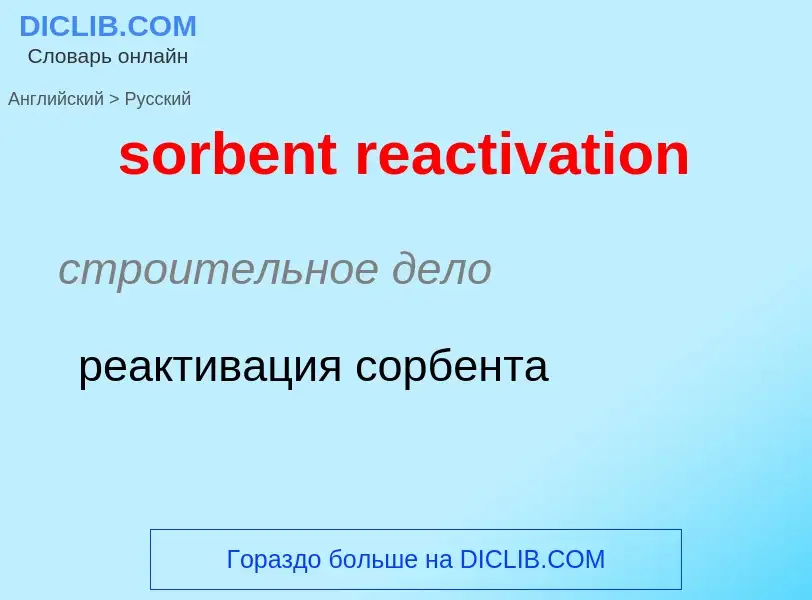Translation and analysis of words by ChatGPT artificial intelligence
On this page you can get a detailed analysis of a word or phrase, produced by the best artificial intelligence technology to date:
- how the word is used
- frequency of use
- it is used more often in oral or written speech
- word translation options
- usage examples (several phrases with translation)
- etymology
sorbent reactivation - translation to russian
строительное дело
реактивация сорбента
['sɔ:bənt]
общая лексика
сорбент
сорбирующий
существительное
химия
сорбент
сорбирующее вещество
Definition
Wikipedia

Solid-phase extraction (SPE) is a solid-liquid extractive technique by which compounds that are dissolved or suspended in a liquid mixture are separated from other compounds in the mixture according to their physical and chemical properties. Analytical laboratories use solid phase extraction to concentrate and purify samples for analysis. Solid phase extraction can be used to isolate analytes of interest from a wide variety of matrices, including urine, blood, water, beverages, soil, and animal tissue.
SPE uses the affinity of solutes dissolved or suspended in a liquid (known as the mobile phase) for a solid through which the sample is passed (known as the stationary phase) to separate a mixture into desired and undesired components. The result is that either the desired analytes of interest or undesired impurities in the sample are retained on the stationary phase. The portion that passes through the stationary phase is collected or discarded, depending on whether it contains the desired analytes or undesired impurities. If the portion retained on the stationary phase includes the desired analytes, they can then be removed from the stationary phase for collection in an additional step, in which the stationary phase is rinsed with an appropriate eluent.
It is possible to have an incomplete recovery of the analytes by SPE caused by incomplete extraction or elution. In the case of an incomplete extraction, the analytes do not have enough affinity for the stationary phase and part of them will remain in the permeate. In an incomplete elution, part of the analytes remain in the sorbent because the eluent used does not have a strong enough affinity.
Many of the adsorbents/materials are the same as in chromatographic methods, but SPE is distinctive, with aims separate from chromatography, and so has a unique niche in modern chemical science.




